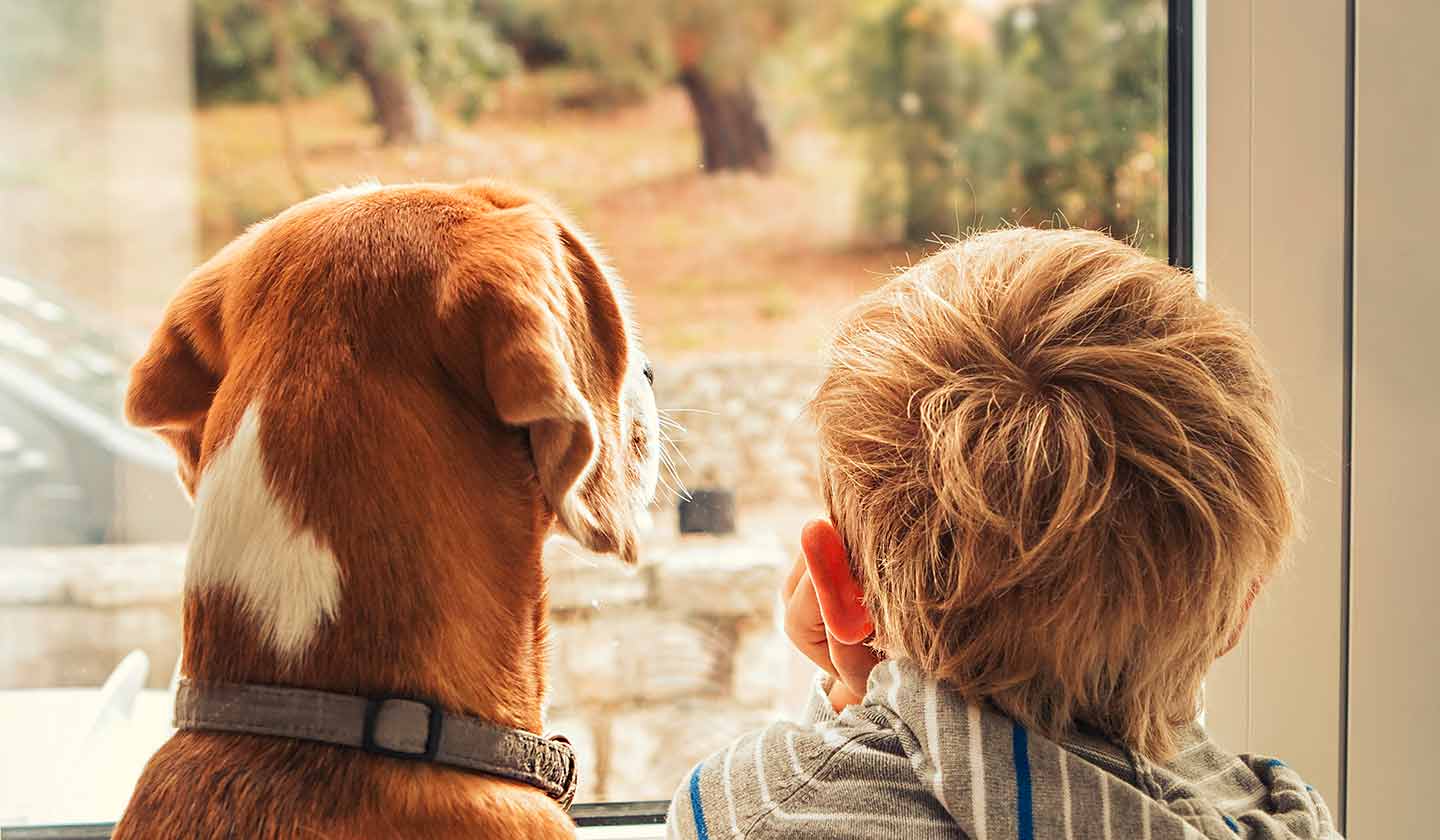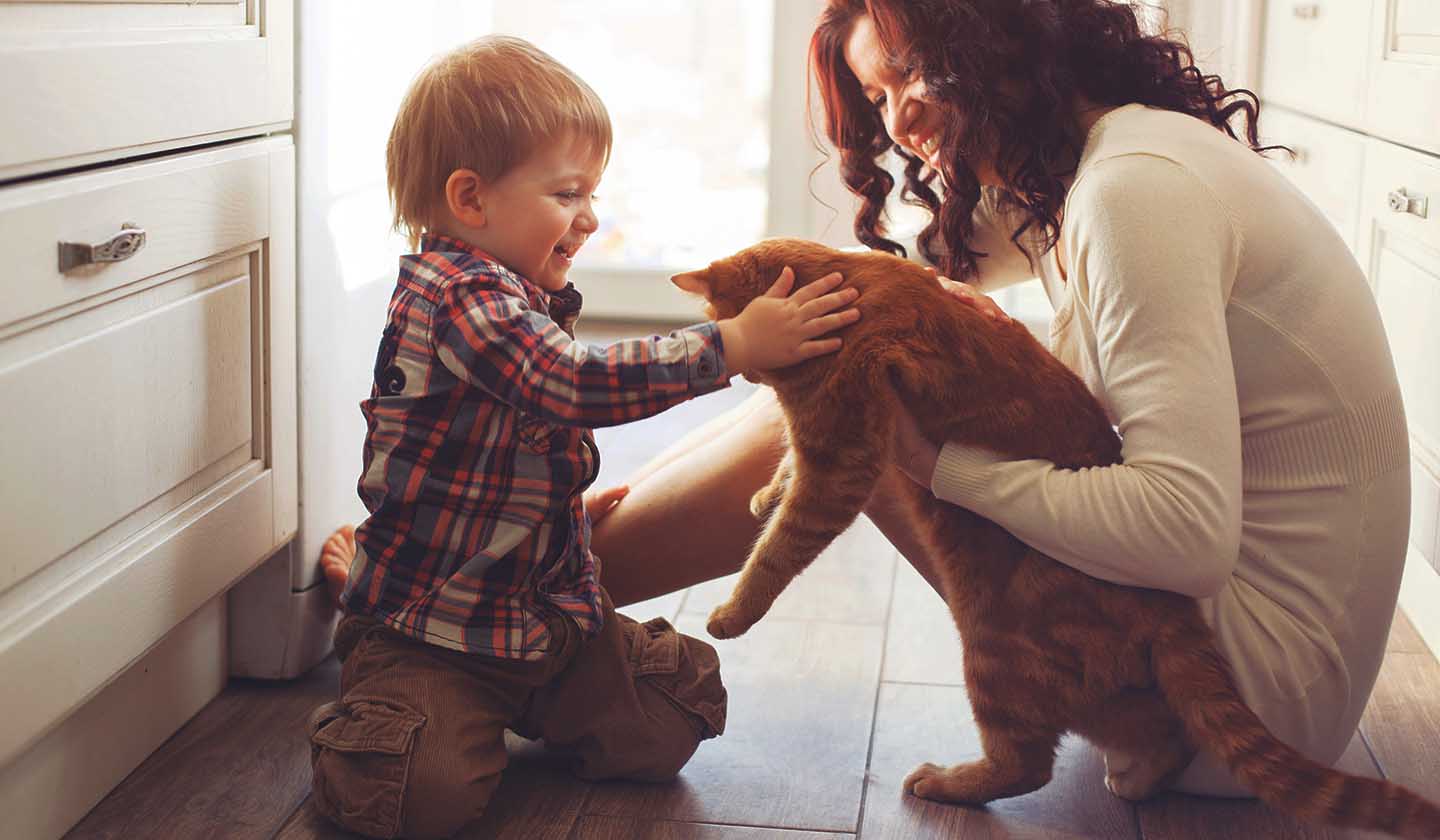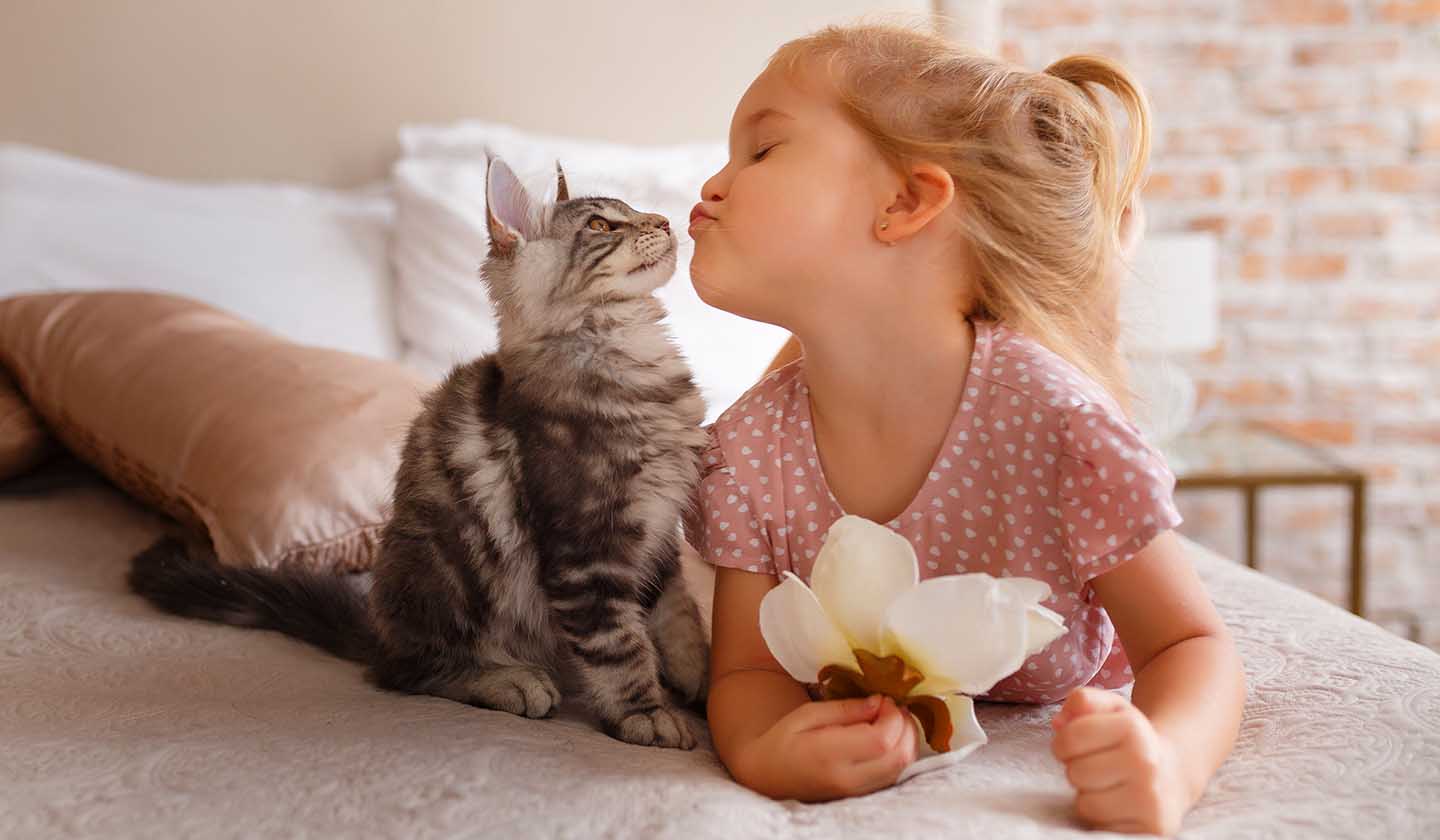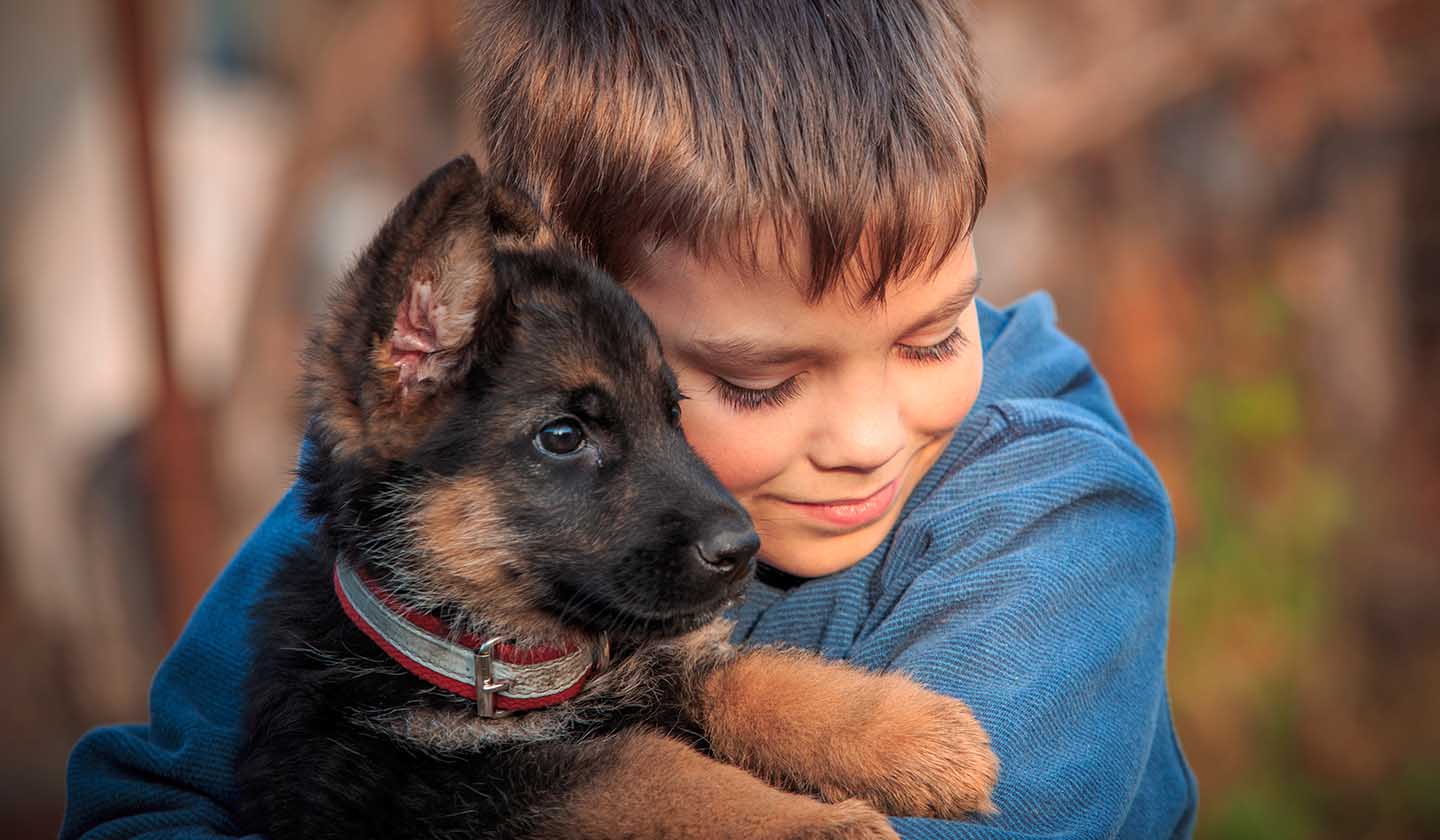Prevention
Children and pets - Friends for life

At some point in their young lives, most children will request a pet of their own, that can be a dog, cat, hamster, turtle, goldfish… any pet to keep them company.
Having the chance to share their own growth with a pet is a great benefit to the development of any child.

However, before the adult decides on whether or not to adopt a pet, some issues must be taken into consideration:
- Child's age - a baby does not understand what it means to care for an animal or what are the cares to be taken when dealing with animals, and this can be dangerous both for the child and the animal.
- Presence of allergies - before adopting an animal, confirm that there are no allergies to animal fur or feathers.
- Type of animal you choose - in the case of dogs, consider the dog’s breed as there may be incompatibilities with children. Larger animals need more space.
Remember that you should not adopt an animal just at the child’s whim; owning a pet costs money and therefore you need to assess the financial conditions available; if there is enough space, in the case of large or very energetic dogs; and if there is a family routine that allows for a pet in the household. If the animal is alone all day because the child is at school and has various activities during the day, the animal will feel unhappy.

Benefits of adopting a pet
- Responsibility - the child learns that the pet needs to be taken care of. For instance, the pet needs to go to the vet, the aquarium or tank water where the pet lives need to be changed, its cage must be cleaned, or it must be fed. This feeling that “someone” depends on him/her is important.
- Socialisation - animals are playmates. The mere presence of the pet will prevent the child from feeling lonely, as he/she will have someone to play with. Children often talk to animals, which helps them in their process of socialisation.
- Affection - the child creates strong bonds with his/her animal and does everything to make the pet feel happy.
- Altruism - given that they are not only concerned with their own well-being but also with the well-being of their pets, children become less selfish and more aware of what surrounds them.
- Immune system - children who grow up with pets are believed to have a stronger immune system because they have more frequent contact with other bacteria.
All these factors show the advantage of adopting a pet but remember that this must be a thoughtful and mature choice. A pet is for life and should be seen as an integral member of the family.

Taking care of your new friend
- If you own a dog or a cat, you should take it to the vet to be dewormed and so that its health condition can be assessed.
- Feed your pet a proper diet, adequate to its life stage and to the type of animal. Human food can be harmful.
- Your pet should have a cosy space to rest and eat.
- Clean the places used by your pets (cages, aquariums, litter boxes)
Sources
iSaúde
Farmácia Distribuição Magazine
Também lhe poderá interessar
Allergies
Allergic conjunctivitis - To treat in the blink of an eye
Respiratory system






